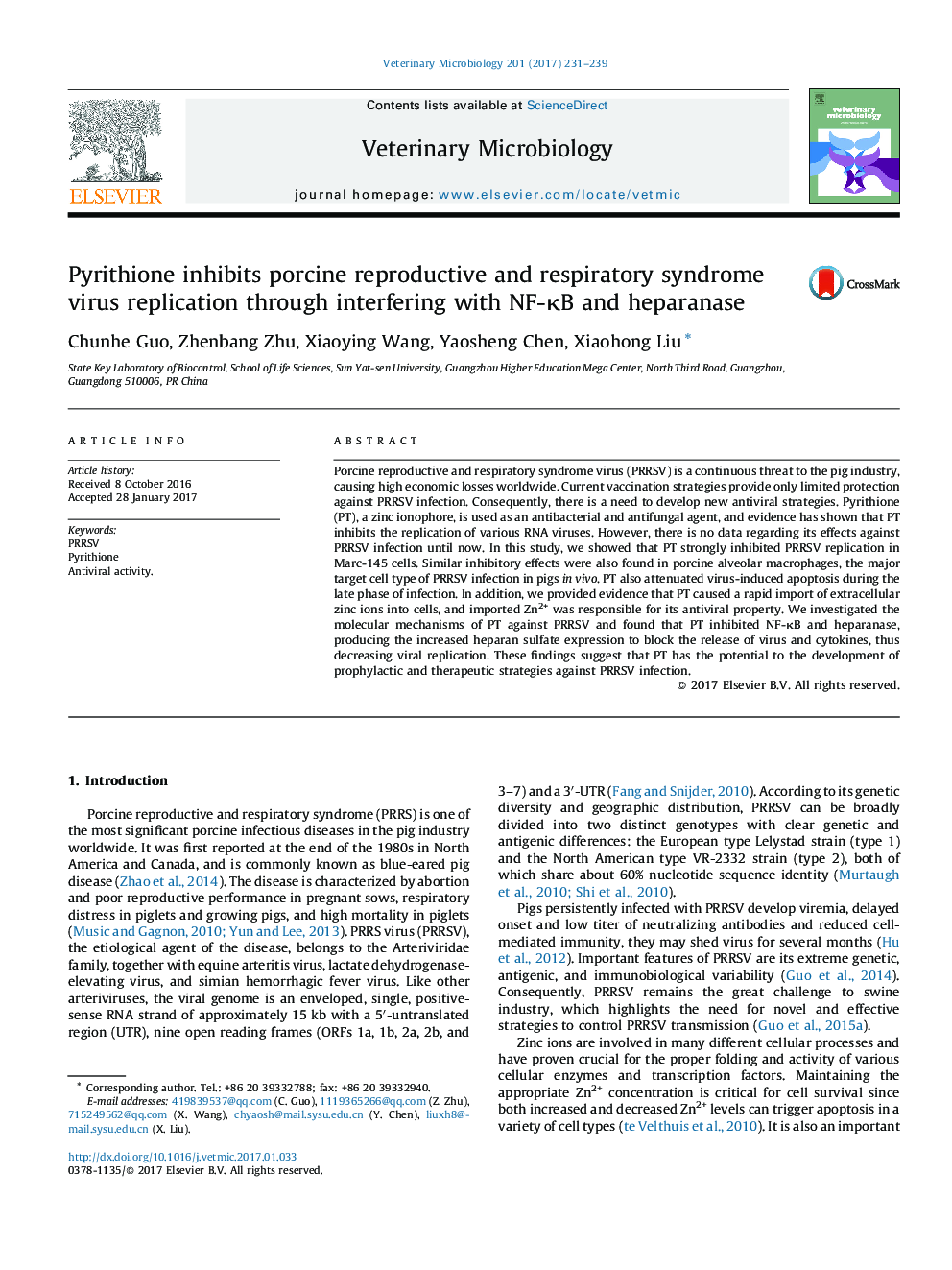| Article ID | Journal | Published Year | Pages | File Type |
|---|---|---|---|---|
| 5545136 | Veterinary Microbiology | 2017 | 9 Pages |
Abstract
Porcine reproductive and respiratory syndrome virus (PRRSV) is a continuous threat to the pig industry, causing high economic losses worldwide. Current vaccination strategies provide only limited protection against PRRSV infection. Consequently, there is a need to develop new antiviral strategies. Pyrithione (PT), a zinc ionophore, is used as an antibacterial and antifungal agent, and evidence has shown that PT inhibits the replication of various RNA viruses. However, there is no data regarding its effects against PRRSV infection until now. In this study, we showed that PT strongly inhibited PRRSV replication in Marc-145 cells. Similar inhibitory effects were also found in porcine alveolar macrophages, the major target cell type of PRRSV infection in pigs in vivo. PT also attenuated virus-induced apoptosis during the late phase of infection. In addition, we provided evidence that PT caused a rapid import of extracellular zinc ions into cells, and imported Zn2+ was responsible for its antiviral property. We investigated the molecular mechanisms of PT against PRRSV and found that PT inhibited NF-κB and heparanase, producing the increased heparan sulfate expression to block the release of virus and cytokines, thus decreasing viral replication. These findings suggest that PT has the potential to the development of prophylactic and therapeutic strategies against PRRSV infection.
Keywords
Related Topics
Life Sciences
Agricultural and Biological Sciences
Animal Science and Zoology
Authors
Chunhe Guo, Zhenbang Zhu, Xiaoying Wang, Yaosheng Chen, Xiaohong Liu,
